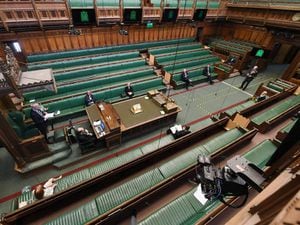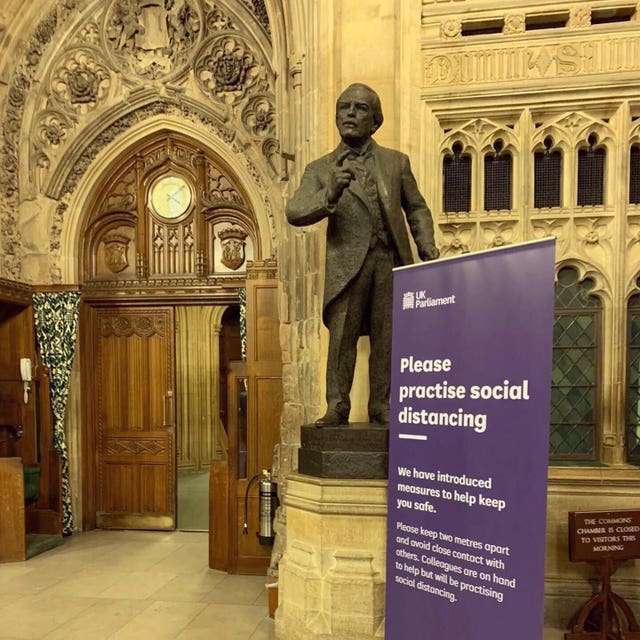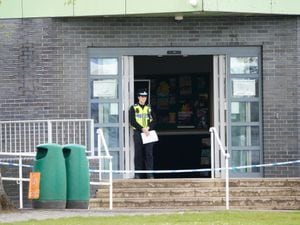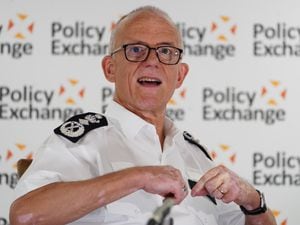MPs set to give green light to ‘virtual’ Parliament arrangments
Members could put questions to ministers by video link under plans expected to be approved on Tuesday.

MPs are expected to approve plans for “virtual” sittings of the Commons when the House returns on Tuesday following the Easter recess.
Under proposals drawn up by the House authorities, MPs will be able to contribute to proceedings at Westminster – including questioning ministers – through video links.
Up to 50 MPs will still be able to be present in the chamber – although they are being strongly encouraged to stay away.
To approve the new “hybrid” arrangement, the House will need to sit physically on Tuesday to vote the plans through.
Strict social distancing arrangements will be in force with MPs required to sit two metres apart.
It is unclear how many will attend, with views divided among those who believe they have a duty to be present and others committed to staying away.
If it does go through, it will mean the new arrangements will in place for Prime Minister’s Questions on Wednesday, with Foreign Secretary Dominic Raab standing in for Boris Johnson.
Speaker Sir Lindsay Hoyle said it would be a “historic” moment for the Commons, and that if it went well MPs could move to a fully “virtual” House.
“It will be a historic moment in our 700-year history to have MPs contributing to Prime Minister’s Questions, urgent questions and statements via video link from the safety of their own homes and offices,” he said.

“If it works, the House will consider extending the measures to a fully virtual Parliament as quickly as possible to include debates on motions and legislation and even a system of remote voting,” he said.
The House of Lords, which also returns on Tuesday, will have a mix of online and in-person proceedings, again with peers encouraged to stay away.
In the Commons, up to 120 MPs will be able to take part remotely through video-conferencing.
Experts from the National Cyber Security Centre have advised that the use of Zoom will be appropriate as long as the application’s use is carefully managed.
A number of screens will be placed around the Commons chamber to allow the Speaker and MPs in Westminster to be able to see their homeworking colleagues.
MPs who wish to participate in proceedings will need to notify the House Service in advance and there will be a list of those chosen and the planned order in which they will be called.
Backbenchers will, as usual, be drawn at random although the Speaker will ensure opposition spokesmen and women and the relevant select committee heads are able to take part.
The initial system does not cover remote voting, although officials are working on developing a secure system which would also have to be approved by the House before it could be adopted.





